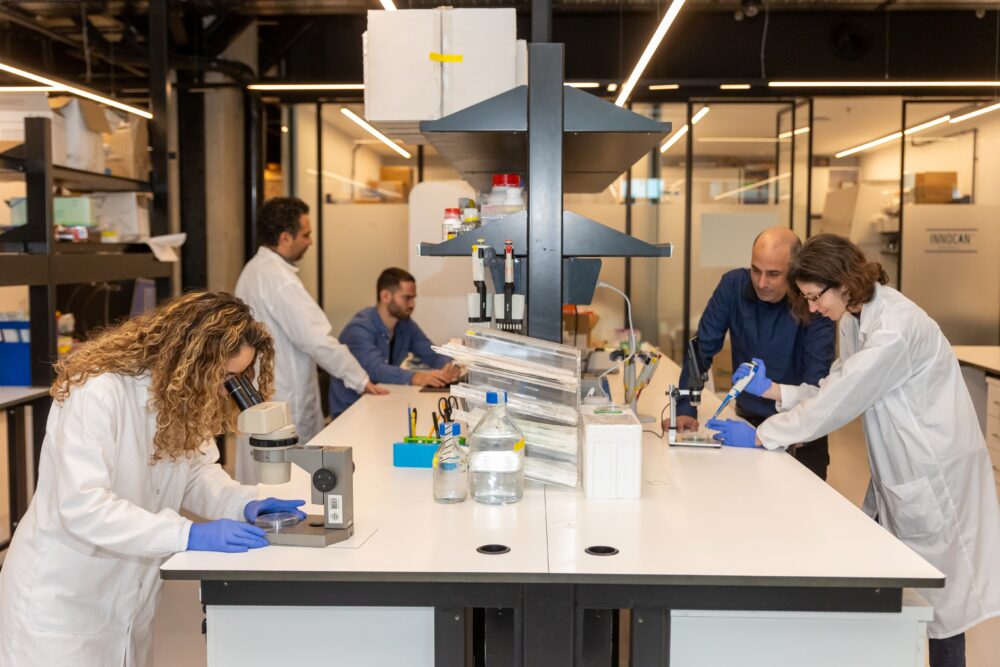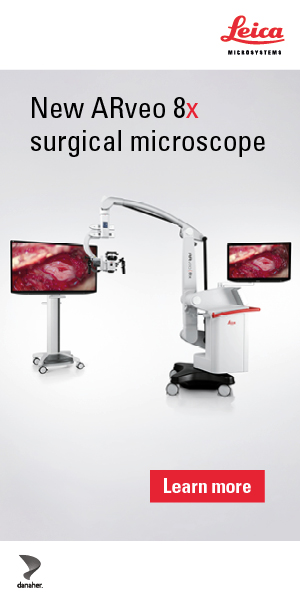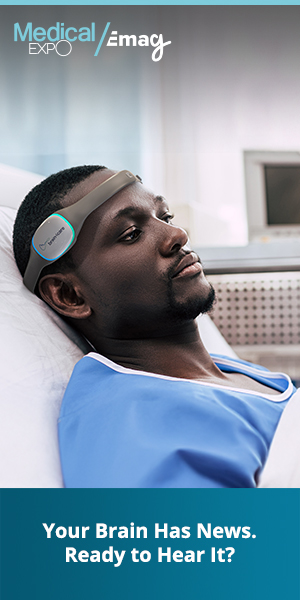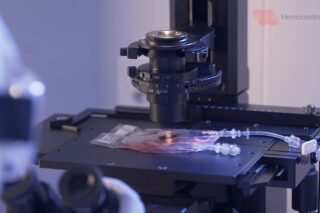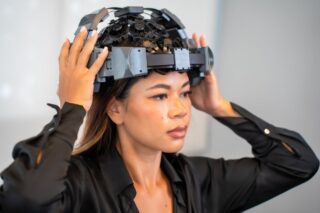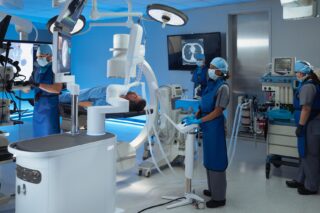Israeli biotech company Itay & Beyond developed its brain-on-chip technology in the pursuit of a platform that can better test drugs for conditions such as severe autism and epilepsy.
The Israeli entrepreneur and investor Shmulik Bezalel founded Itay & Beyond inspired by his son Itay, who has a low-functioning form of autism. The still limited and disappointing therapeutic options for conditions such as that of Itay led him to establish the company in 2021, alongside entrepreneur Boaz Goldman and neuroscientist Nisim Perets.
Their goal is to develop a drug discovery and testing platform not only for autism, but also for neurological and psychiatric disorders such as epilepsy, Parkinson’s, Alzheimer’s, and schizophrenia.
“It is fundamental to understand that, when it comes to severe forms of autism, we are not talking about a behavioral or social-emotional barrier; we are talking about a cognitive issue and a neurological dysfunction. That is the reason why these patients sometimes spend a lot of time in behavioral treatments and yet have very limited improvement,” Perets told MedicalExpo e-Magazine.
Itay & Beyond intends to achieve its goals by creating a system based on a brain-on-chip technology that can predict the efficacy of specific drugs on the functioning of cognitive and behavioral aspects of the brain. The ongoing research is taking place at Jerusalem’s Hadassah Medical Center, and a first peer-reviewed scientific paper about it, in partnership with the medical center, should be published in one or two months.
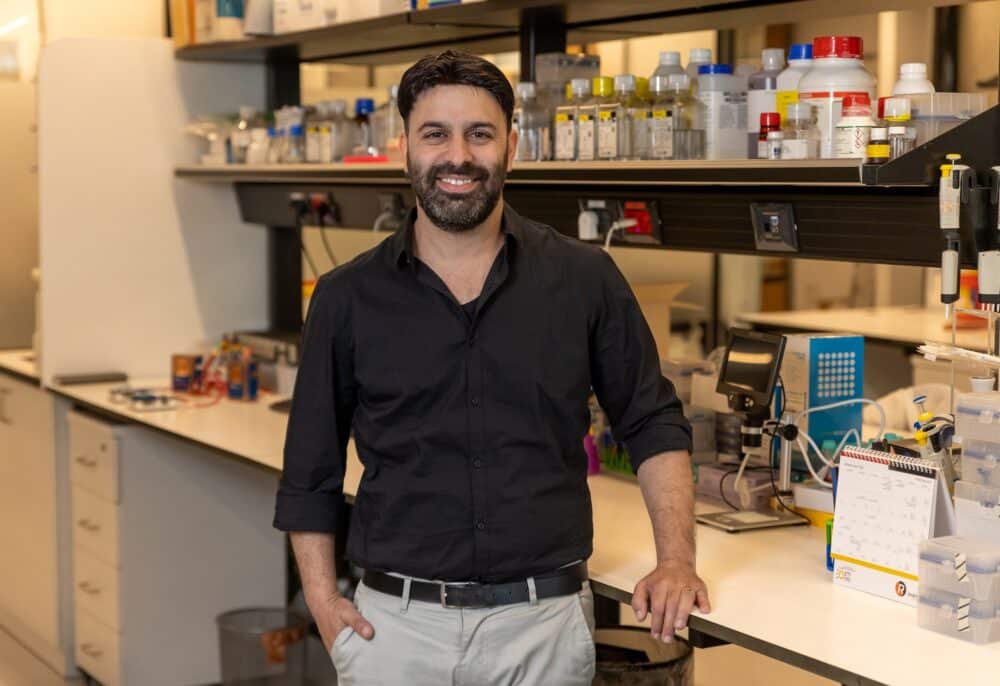
Brain Organoids and Measuring Electronic Signals
Perets and his team extract a single cell from a patient’s urine sample, reprogram this cell into a stem cell and then grow brain organoids from them in a petri dish. Brain organoids are tissues that resemble parts of the human brain and can be built in various sizes. It is also possible to combine different types of brain tissues representing different types of brain areas, for example.
The next step is to transfer these organoids onto an electronic chip, which is connected to a computer. The tissue sits on a multi-electrode array (see image below), and each electrode records and can provide stimuli to the brain organoids. Consequently, the brain-on-chip technology allows scientists to measure electronic signals from living brain tissue grown in vitro.
The main concept behind Itay & Beyond’s research is the idea that the brain can be looked at as a computational machine rather than as an organ like the heart or the liver, for example.
“Given everything we know about the brain, we can make the assumption that it is an information-coded machine. The information process of the algorithms behind tools such as ChatGPT basically and literally mimics the human brain—meaning the functional way in which the brain codes information,” Perets explained.
“So, in this research, we are measuring the neurons’ activity patterns, coding, and abilities of control, healthy brain organoids from every single angle that we can, so we can establish these as the normal capabilities of the human brain. Then, when we compare these samples with the organoids we got from the brains of patients with epilepsy, autism, or other morbidities, we see deviations, and we define them as the problem.”
Itay & Beyond also employs advanced AI technology and big data analysis to measure these deviations.
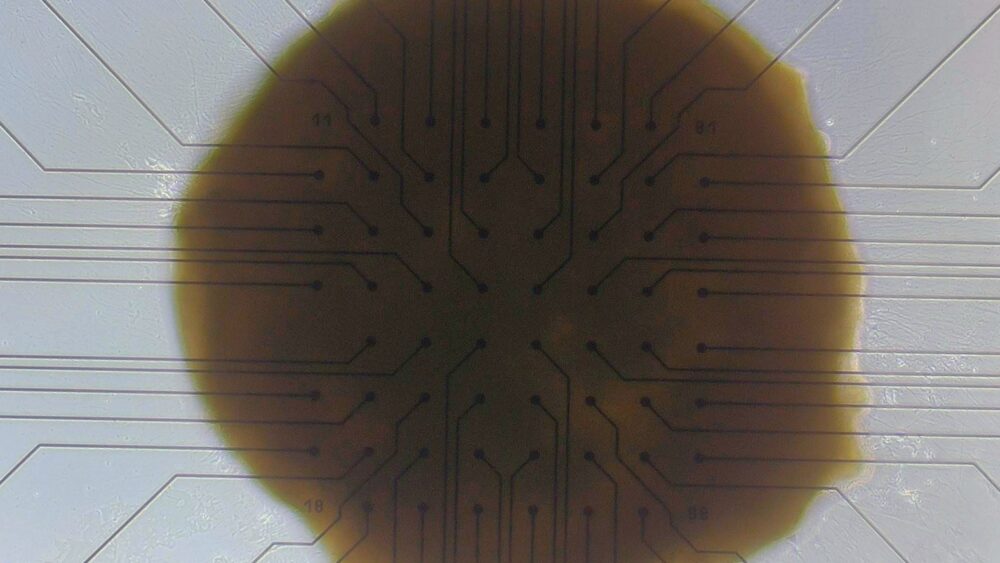
Consistency in Samples & Promising Research
Having lab-grown brain tissue to work on is far from being an easy process.
“We overcame many technical challenges to produce stable brain organoids, in addition to the conceptual challenge of working with something at the cutting edge of current science, which requires providing even more evidence than usual. When we are growing ten brain tissue samples from the same person, we need to make sure that they all look the same and behave more or less the same, with minimal difference between themselves,” Perets explains.
The best protocol to create these organoids is a work in progress, and can still be refined as the company carries on the drug tests.
“As a company, however, we need to think in terms of cost-effectiveness, too. We don’t want the platform to be the most complicated thing ever if that makes the prediction be only slightly better. We want it to be as simple as possible as long as the prediction is good enough. It’s about balance,” he said.
Perets believes that Itay & Beyond’s research is looking very strong and promising right now, and has great potential to find better treatments also for psychiatric conditions such as drug-resistant depression and bipolar disorder, for example.
“It’s in our pipeline, and it’s not so far away. We started with low-functioning autism, added epilepsy, and will target other conditions in the future,” says Perets.
Moving forward, the company can also help big pharma companies better predict clinical outcomes in their research and therefore save both money and time, getting better and more suitable drugs coming out quicker to the clinical phase of trials.
“And although we are not doing this right now, we also have the potential to work alongside clinicians themselves—the doctors treating these patients with these conditions. This technology is very versatile. It can even be used for early diagnosis. After all, once we see that the neuronal activity of a certain brain organoid is impaired, it doesn’t matter if we got the cells from a baby or a grown child. It can be predictable,” he explained.
